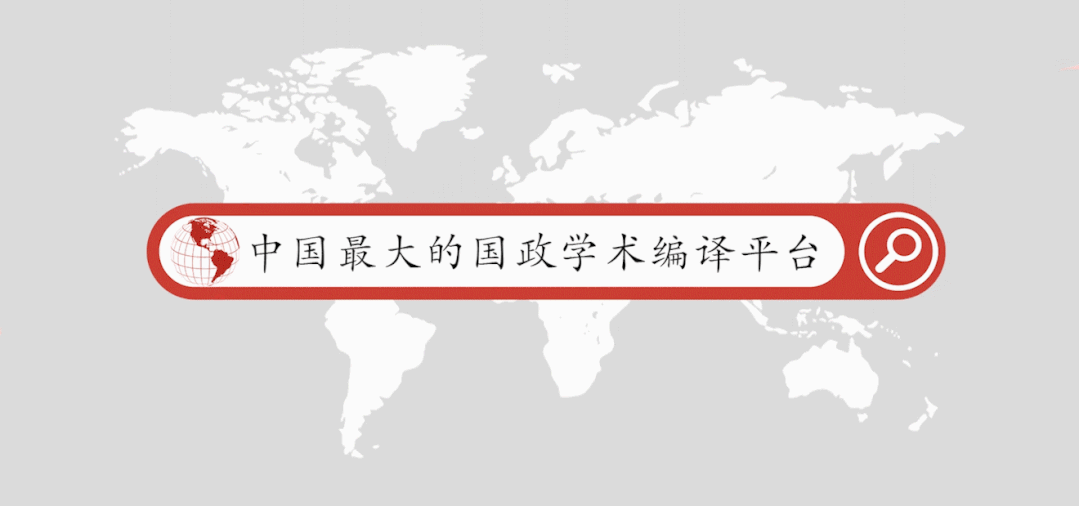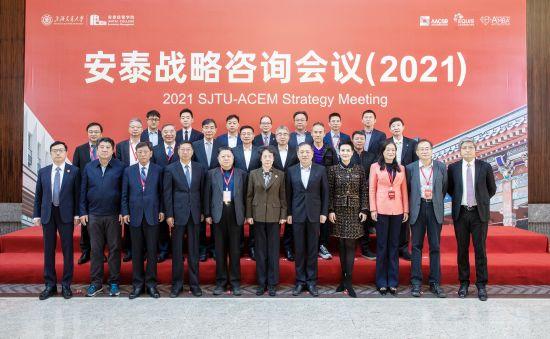「新刊速递」《国际政治经济学评论》(RIPE), Vol.29, No.2, 2022 | 国政学人

期刊简介

《国际政治经济学评论》(Review of International Political Economy)是一份涵盖国际政治经济学研究的双月刊同行评审学术期刊。其成立于1999年,由Routledge出版。本刊是国际政治经济学领域的主流期刊之一,与《新政治经济学》(New Political Economy)并列。2020年该刊影响因子为4.659。
本期目录
1. 铭记和忘却IPE:作为边界工作的学科历史研究
Remembering and forgetting IPE: disciplinary history as boundary work
2. 霸权领导力是国家造就的:在华盛顿与柏林阅读金德尔伯格
Hegemonic leadership is what states make of it: reading Kindleberger in Washington and Berlin
3. 什么导致了国际治理细节的变化:一种经济安全视角
What causes changes in international governance details?: An economic security perspective
4. 金融化,劳动力市场制度与不平等
Financialization, labor market institutions and inequality
5. 独家专长:国际组织的边界工作
Exclusive expertise: the boundary work of international organizations
6. 迈向瑞士军刀之国?——发达民主国家经济干预主义的变化(1980-2015)
Towards a Swiss Army Knife State? The changing face of economic interventionism in advanced democracies, 1980–2015
7. 公共投资v.s.政府消费:FDI冲击如何影响墨西哥次国家支出的构成
Public investment versus government consumption: how FDI shocks shape the composition of subnational spending in Mexico
8. “中国制造”何以挑战美国结构性权力:产业政策、知识产权与跨国公司
The made in China challenge to US structural power: industrial policy, intellectual property and multinational corporations
9. 错误信息、经济威胁和公众对国际贸易的支持
Misinformation, economic threat and public support for international trade
10. 作为软实力的德国能源转型
The German energy transition as soft power
11. 天空或地球是极限吗?风险、不确定性和自然
Is the sky or the earth the limit? Risk, uncertainty and nature
12. 全球化与投票意愿:个人福利与社会环境的互动作用
Globalization and intention to vote: the interactive role of personal welfare and societal context
01
铭记和忘却IPE:作为边界工作的学科历史研究
题目:Remembering and forgetting IPE: disciplinary history as boundary work
作者:Ben Clifta,华威大学政治经济学教授,研究领域为比较政治经济学和国际政治经济学。Peter Marcus Kristensenb,哥本哈根大学政治学系副教授,研究领域为国际关系理论、知识社会学、学科史、崛起大国和权力转移理论。Ben Rosamond,哥本哈根大学政治学系教授,研究领域为欧洲和区域一体化理论、欧洲政治经济学、全球化政治分析中的观念与话语和英国脱欧的政治经济学。
摘要:只有了解其学科体系,才能全面理解IPE学科发展和学术再生产的过程。这将学术研究的以下四个方面制度化:(1)什么作品会在该领域内被认可?(2)学术研究应如何开展,在哪发表?(3)该领域的合理边界在哪里?(4)该学科与其他同源学科的“关系”如何?在该学科具有影响力的学术把关人塑造了对该学科适当行为、核心内容以及领域外内容的看法。初学者的入门读物可以反映出对IPE性质和边界的学科定义。学科起源故事尤为重要,它们总能协调和指导当下和未来的学术发展形成影响。学科历史需要遗忘某些不符合主流年表的事件、学者和作品,将一些主题、辩论和问题边缘化或排除在该领域的核心之外。通过对IPE引文范例和实践的文献计量和网络分析,作者证明了他们关于叙述IPE学科起源相关边界工作的主张。他们发现,IPE的研究领域比其通常呈现的更为狭窄。
A full understanding of the development and re-production of IPE is only possible with an appreciation of its disciplinary politics. This institutionalises four aspects of academic inquiry: (a) what is considered admissible work in the field, (b) how work should be conducted and where it should be published (c) where the field’s legitimate boundaries are, and (d) ‘external relations’ with cognate disciplines. Academic gatekeepers in positions of disciplinary influence shape perceptions about appropriate conduct within the field, what constitutes its core, and what lies outside its realm. Disciplinary political definitions of the field’s nature and limits are manifest in the writing of texts introducing students to IPE. Particularly important are origin stories, which are always partly about directing and coordinating scholarly activity in the present and for the future. Disciplinary history entails forgetting certain events, scholars and works that do not fit the prevailing chronology, marginalising or excluding some topics, debates and questions from the core of the field. We evidence our claims about the boundary work done in narrating IPE’s origins through bibliometric mapping and network analysis of IPE citation patterns and practices. We find that IPE is a narrower, more blinkered field than it typically presents itself to be.
02
霸权领导力是国家造就的:在华盛顿与柏林阅读金德尔伯格
题目:Hegemonic Leadership is What States Make of It: Reading Kindleberger in Washington and Berlin
作者:Matthias Matthijis, 约翰斯·霍普金斯大学国际问题高等研究院(SAIS)国际政治经济学副教授。他的研究兴趣为经济危机时的政治、经济思想在经济政策制定中的角色和区域一体化问题。
摘要:在经济危机中,什么因素解释了主导国家针对危机的系统性回应措施?2008年全球金融危机发生后,美国在世界经济中扮演霸主的角色,并扮演(全球经济的)消费者、投资者和最后贷款人角色以展示其“仁慈”领导权。在两年后的欧元危机中,德国则扮演了一个十分不同的角色,在欧洲区域范畴内实践一种较为“强迫性”的、基于规则的领导权。在本文中,作者解释了受国民经济传统影响的观念与危机叙事如何塑造了主导国家的行为方式。相较于对查尔斯·金德尔伯格“霸权稳定论”的现实主义与自由制度主义的解读,作者回到其原初版本,廓清了为什么美国精英遵循一种“温和凯恩斯主义”的现实路径,并提供全球公共产品;而德国的精英群体则更为克制,选择执行规则这一更具原则性的,避免提供公共产品的“秩序自由主义”(ordo-liberalism)道路。在结构和制度因素之外,观念的重要作用在危机期间界定国家利益帮助人们更好理解“霸权领导力是国家造就的”这一问题,这也导致美国和德国的精英群体以不同的方式理解金德尔伯格的理论。
What explains the nature of a dominant state’s systemic crisis response? In the wake of the global financial crisis of 2008, the U.S. acted as the hegemon for the world economy, showing ‘benign’ leadership by serving as consumer, investor, and lender of last resort. During the euro crisis two years later, Germany played a rather different role, practicing a more ‘coercive’ form of rules-based leadership within Europe’s regional context. In this paper, I explain how ideas and crisis narratives, informed by national economic traditions, shaped how the leading states behaved. By rescuing Charles Kindleberger’s original version of hegemonic stability theory from both its realist and liberal institutionalist interpreters, the paper clarifies why elites in the U.S. followed a hardheaded path of soft Keynesian ideas resulting in global public goods provision while their counterparts in Germany, be it more constrained, opted for a more principled road of rule enforcing ordo-liberal ideas avoiding public goods provision. The crucial role of ideas – in addition to structural and institutional factors – in defining the national interest during periods of crisis helps us better understand “why hegemonic leadership is what states make of it.” This led American and German elites to interpret Kindleberger in very different ways.
03
什么导致了国际治理细节的变化:一种经济安全视角
题目:What causes changes in international governance details?: An economic security perspective
作者:Kaewkamol Pitakdumrongkit,新加坡南洋理工大学拉惹勒南国际研究院助理教授,研究兴趣包括国际经济谈判、东南亚和东亚经济治理、东盟经济共同体以及东盟+框架等。
摘要:本文提供了一个新的解释视角,以丰富我们对小国经济安全与多边治理条款之间关系的理解。文章通过建立国家经济安全与其制度反应和重新调整特定安排条款的决定之间的因果联系,试图阐明这样一个问题:“是什么导致多边协议细节变化?”作者认为,不同类型的大国行为(这些行为包括大国竞争、经济国策以及在现有谈判框架中夺取优势)对小国经济安全的破坏各不相同,并导致小国选择不同的制度反应方式,调整不同的制度规则。为了验证这一论点,本文研究了2018年修订“伊洛瓦底江-湄南河-湄公河经济合作战略”(ACMECS)。本文对经济安全、小国制度战略等相关议题做出了贡献,并旨在激发国际关系和国际政治经济学之间更多的跨学科研究。
This article introduces a new interpretative lens to enrich our understanding of a relationship between small states’ economic security and the terms of multilateral governance. It seeks to shed light on the question: “What causes such changes in the details of multilateral agreements?” by establishing the causal pathways linking countries’ economic security with their institutional responses and decisions to rejig particular arrangement terms. I argue that different types of major powers’ behavior – rivalry among themselves, their economic statecraft, and their gaining advantage in existing negotiation frameworks – undermine small states’ economic security differently, causing them to select dissimilar institutional responses and adjust dissimilar institutional rules. To test the argument, the case of the Ayeyawady-Chao Phraya-Mekong Economic Cooperation Strategy (ACMECS) which was revamped in 2018 is examined. My work contributes to the literatures on economic security, small states’ institutional strategies, and seeks to stimulate more interdisciplinary research between International Relations and International Political Economy.
04
金融化、劳动力市场制度和不平等
题目:Financialization, Labor Market Institutions and Inequality
作者:Evelyne Huber, 北卡罗来纳大学政治学系教授;Bilyana Petrova, 纽约城市大学斯通社会经济不平等中心博士后研究员;John D. Stephens, 北卡罗来纳大学政治学和社会学系教授。
摘要:过去三十年期间,后工业民主国家的不平等现象不断加剧,金融化程度不断加深。越来越多的文献将这两者联系起来。作者通过辨析金融化的哪些方面能够推动不平等的增长,以及这种影响会在收入分配的哪个环节发生这两个方面,推进了这一议题的研究。作者还表明,这种效应取决于制度环境。作者认为,金融化的两个维度——公司治理中的股东模式和日益增长的对金融专业群体的需求——推动了税前的收入不平等。然而,股东价值模式的扩散仅仅使那些处于最高收入阶层的群体受益。作者进一步认为,劳动的制度力量塑造了金融化和不平等的关系。作者分析了这两个维度的指标对处于最高收入的1%群体和之后9%群体的收入份额,以及90:50的薪酬比数据的影响。此外,作者用1960-2015年18个后工业民主国家的数据检验了文中的假设。
The last three decades have witnessed rising inequality and deepening financialization in post-industrial democracies. A rapidly growing literature has linked these two phenomena. We go beyond existing scholarship by specifying which aspects of financialization can be expected to increase inequality and where in the income distribution this effect will occur. We also show that this effect is contingent on institutional context. We posit that the shareholder model of corporate governance and the growing demand for financial professionals are the two dimensions of financialization that drive up pre-tax income inequality. Nevertheless, the spread of the shareholder value model only benefits the very top income earners. We further argue that the institutional strength of labor shapes the relationship between financialization and inequality. We analyze effects of indicators of these two dimensions of financialization on the top 1% and the next 9% income shares and on the 90:50 earnings ratio. We test our hypotheses with data on 18 post-industrial democracies between 1960 and 2015.
05
独家专长:国际组织的边界工作
题目:Exclusive expertise: the boundary work of international organizations
作者:Matthias Kranke,卡塞尔大学博士后研究员,研究领域包括全球经济、环境治理和国际组织间关系等。
摘要:国际组织享有专家权威,因为它们为决策提供了适用的专业知识,这是全球治理学者的共识。这种观点意味着国际组织的专家地位更多依赖于其知识的内容而非知识的表达。本文将“边界工作”(boundary work)的社会学概念纳入戈夫曼的符号-拟剧视角,阐述了一种相互竞争的解释,即发现专家权威的关系性和展演性。本文认为,在权力范围重叠的情况下,国际组织有两个松散耦合的功能:划界和合作。国际组织虽然在“前台”划定自己的管辖范围,以打造独家专长的观念,但他们在“后台”密切合作以缓解内部资源限制。本文通过研究国际货币基金组织和世界银行之间围绕金融部门评估规划(FSAP)这一联合项目的关系来说明该这一论点。对精英访谈和相关文件的分析表明,国际货币基金组织的前台划界工作需要在没有世界银行的情况下推动FSAP改革,启动新的监督举措。然而,划界虽可以强化国际组织的专业性,但也有可能损害组织间的关系。
Scholars of global governance tend to agree that international organizations (IOs) enjoy expert authority because they provide applicable specialist knowledge for policymaking. This view implies that IOs’ expert status rests more on the contents than the presentation of their knowledge. Integrating the sociological concept of ‘boundary work’ into a Goffmanian symbolic-dramaturgical perspective, this article articulates a competing interpretation that recovers the relational and performative aspects of expert authority. I argue that, in settings where spheres of authority overlap, boundary work by IOs serves two loosely coupled functions: demarcation and cooperation. While IOs demarcate their jurisdictions on the ‘frontstage’ to craft perceptions of exclusive expertise, they closely cooperate on the ‘backstage’ to mitigate internal resource constraints. I illustrate this argument by examining the relationship between the International Monetary Fund (IMF or Fund) and the World Bank (or Bank) around the joint Financial Sector Assessment Program (FSAP). Based on elite interviews and relevant documents, the analysis shows that the IMF’s frontstage boundary work entailed promoting FSAP reforms and launching a new surveillance initiative without the World Bank. Yet while demarcation can augment an IO’s expertise, it risks poisoning inter-organizational relationships.
06
迈向瑞士军刀之国?——发达民主国家经济干预主义的变化(1980-2015)
题目:Towards a Swiss Army Knife State? The changing face of economic interventionism in advanced democracies, 1980–2015
作者:Axel Cronert,瑞典乌普萨拉大学政府系研究员,乔治城大学麦考特公共政策学院助理研究员。
摘要:本文系统地回顾了自20世纪80年代初以来,经济合作与发展组织(OECD)18个成员国众多经济政策指标的趋势,整合了几篇独立文献中关于国家经济干预主义命运的成果。本报告没有观察到任何范式意义上的政策转变,反而发现具有明显不同理念基础的政策目前是共存的。与不干预主义的方式一致,政策制定者在很大程度上抛弃了以往具有侵入性的非正统“竞争工具”,并在货币主义理论基础上确立了新的货币政策规范。然而,这并没有导致经济干预主义的全面退却。相反,政策制定者正在逐步发展一种新的、尽管更为受限的方法,以促进经济活动与选定的分配目标的一致性,这样的国家可以称为“微观干预主义国家”,或“瑞士军刀国家”,与这种方法相关的“多功能工具”包括横向产业政策、积极社会政策、战略性税收支出和采购。这种方法之所以具有跨党派吸引力,部分原因在于它们的多功能性,因为决策者可以将它们用于非常不同的分配目标。为了更好地理解当代经济政策的政治和分配后果,学者们需要更认真地对待它们的多样性,在理论和经验上将重点从政策制定者对经济的干预程度转移到干预方式上。
This article systematically reviews trends in numerous economic policy indicators in eighteen OECD countries since the early 1980s, synthesizing findings about the fate of states’ economic interventionism from several customarily separate literatures. Rather than observing any paradigmatic policy shift, the review finds that policies with markedly different ideational foundations currently cohabitate. In line with non-interventionist prescriptions, policymakers have largely abandoned the intrusive heterodox ‘power tools’ of previous eras, while establishing new norms for monetary policy based on monetarist theory. However, this has not led to a full retreat of economic interventionism. Instead, policymakers are gradually developing a new, albeit more constrained, approach to promoting economic activity in line with selected distributional goals – here labelled the micro-interventionist state, or the ‘Swiss Army Knife State’, as it were. The cross-partisan appeal of the ‘multi-tools’ associated with this approach – such as horizontal industrial policy, active social policy, and strategic tax expenditures and procurement – partly stems from their versatility, as policymakers can use them to very different distributional ends. To better understand the politics and distributional consequences of contemporary economic policies, scholars need to take their versatility more seriously, shifting focus theoretically and empirically from how much to how policymakers intervene in the economy.
07
公共投资v.s.政府消费:FDI冲击如何影响墨西哥次国家支出的构成
题目:Public investment versus government consumption: how FDI shocks shape the composition of subnational spending in Mexico
作者:Theodore Kahn, 哥伦比亚高级教育和发展基金会研究员;Zack Zimbalist, 墨西哥蒙特雷科技大学政治学和国际关系专业客座教授。
摘要:20世纪90年代,众多发展中国家同时经历了全球经济一体化和权力分散化的过程。因此,次国家政府在国际经济中扮演越来越重要的角色,例如,制定政策以确保来自跨国公司的投资,这可能影响到次国家层次的公共资源管理。本文突破以往研究对财政激励的关注,强调“积极”外国投资激励——包括对建设新的基础设施和发展工人培训项目的承诺——如何影响了墨西哥次国家层次的公共财政。本文证明,吸引外国直接投资(FDI)影响了次国家政府行使其政策权限和财政资源的方式。基于1998年至2017年墨西哥各州的面板数据,本文发现FDI冲击与州政府公共投资的统计和经济意义上的增长,以及公共部门的商品和非人员服务消费的减少有关。针对普埃布拉州一个有代表性的投资项目的案例研究强调了积极的投资激励机制作为连接吸引FDI和次国家层次支出结果的因果机制的重要性。本文说明了吸引FDI如何影响次国家层次公共支出的分配,并在理论上区分了消极和积极投资激励措施。
During the 1990s, many developing countries underwent simultaneous processes of global economic integration and decentralization. As a result, subnational governments became increasingly important actors in the international economy, including through policies to secure investments from multinational corporations (MNCs). These efforts have the potential to affect the management of public resources at the subnational level. Breaking from the literature's focus on fiscal incentives, we highlight how “active” foreign investment incentives—including commitments to build new infrastructure and develop worker training programs—have shaped subnational public finances in Mexico. We demonstrate that FDI attraction affected how subnational governments exercised their growing policy authority and fiscal resources. Based on panel data from Mexican states between 1998 and 2017, we find that FDI shocks are associated with statistically and economically significant increases in public investment by state governments, and decreases in public sector consumption of goods and non-personnel services. A case study of a representative investment project in Puebla highlights the importance of active investment incentives as a causal mechanism linking FDI attraction and subnational spending outcomes. Our results illustrate how FDI attraction can affect the distribution of subnational public spending and also develop a theoretically-relevant distinction between passive and active investment incentives.
08
“中国制造”何以挑战美国结构性权力:产业政策、知识产权与跨国公司
题目:The Made in China Challenge to US Structural Power: Industrial Policy, Intellectual Property and Multinational Corporations
作者:Anton Malkin, 香港中文大学(深圳)全球研究系助理教授,国际治理创新中心(Center for International Governance Innovation)研究员。他的研究兴趣是中国在全球经济(尤其是金融和知识产权领域)中的角色。
摘要:本文讨论了美国在全球经济中的权力问题。作者认为,中国相对于美国的结构性权力潜能在近来的国际政治经济学文献中常被低估。文章论证了美中贸易与技术冲突,并描绘了中国在全球经济中的自主性和影响力。通过评估无形资产在全球价值链中越来越重要的作用,本文对结构性权力提出了新的理解。文章关注“生产性权力”(productive power)的概念,将苏珊·斯特兰奇(Susan Strange)对生产性权力的原有定义拓展并分解为四个子类别,包括(1)全球价值链的中心性;(2)市场权力;(3)资产所有权;(4)技术标准制定。文章开头将美中技术和贸易对抗现象纳入超级大国相对权力竞争的视角,并考察有关中国在知识产权保护和商业化、全球价值链位置、标准制定和竞争政策几个领域的崛起的数据和文献。作者因而指出中国的权力在以上这些领域都分别出现了崛起现象。作者在结论中提出,中国拥有潜在的生产性权力,而“中国制造2025”和相关的产业政策规划的目标则是实现中国的结构性权力潜能。
This paper addresses the question of United States’ power in the global economy, suggesting that China’s structural power potential vis-à-vis its American counterpart has been underestimated in recent international political economy (IPE) literature. It examines the US-China trade and technological conflict and maps China’s autonomy and influence in the global economy, offering a new interpretation of structural power, assessed on the basis of the growing importance of intangible assets in global value chains. The paper focuses on the notion of productive power, expanding on Susan Strange’s definition of productive power by breaking down this category of power into four subcategories: 1) centrality in global value chains, 2) market power, 3) ownership of assets, and 4) technological standard-setting. The paper begins by framing the US-China tech and trade confrontation in terms of a relative power contest between the two superpowers. Examining data and literature on China’s ascent in the realm of intellectual property protection and commercialization, global value chain ascension, as well as standard setting and competition policy, it points to China’s growing strengths in each of these categories, respectively. It concludes that China possesses latent productive power, and that the Made in China 2025 and related industrial policy plans aim to actualize China’s structural power potential.
09
错误信息、经济威胁和公众对国际贸易的支持
题目:Misinformation, economic threat and public support for international trade
作者:D. J. Flynna,西班牙 IE 大学全球与公共事务学院政治学助理教授,研究领域为错误信息、公众舆论以及调查和实验方法。Yusaku Horiuchib,达特茅斯学院政府系教授,研究领域为外国/全球舆论、日本政治、多样性、选举、政治方法论。Dong Zhang,香港岭南大学政治学系助理教授,研究领域为发展政治经济学、威权政治、腐败与治理。
摘要:最近世界各国保护主义情绪高涨,重新引发了关于公民贸易政策偏好决定因素的长期争论。其中,作为两个愈发相关的因素,错误信息和经济威胁并未被充分研究,因此,本文作者试图探究这两个因素对美国国际贸易支持的影响。首先,研究表明,尽管有大量相反的证据,但仍有超过六成的美国人支持中国汇率操纵的错误观点。其次,作者基于调查实验指出,不论威胁框架是否存在,错误信息是可以被纠正的。然而,与这些基于事实信念(factual beliefs)的结果不同,作者发现贸易政策偏好相当稳定,反对贸易的错误信息和经济威胁框架都不会使得对国际贸易的支持显著降低。这些发现表明,在反对贸易的动员方面,政治精英通过使用误导性和威胁性言论来“打中国牌”的策略效果有限。
The recent surge in protectionist sentiment in countries around the world has rekindled the long-standing debate over the determinants of citizens’ trade policy preferences. We examine the influence of two understudied but increasingly relevant factors – misinformation and economic threat – on support for international trade in the United States. We first show that more than 6–in–10 Americans endorse a salient misperception about Chinese currency manipulation despite extensive evidence to the contrary. Then, based on a preregistered survey experiment, we show that misinformation can be corrected, regardless of whether the threatening frame is present or not. In contrast to these results on factual beliefs, however, we find that trade policy preferences are considerably stable: neither anti-trade misinformation nor an economically threatening frame significantly reduces support for international trade. These findings suggest that political elites’ strategy of ‘playing the China card’ by using misleading and threatening rhetoric is not so effective in mobilizing opposition to trade.
10
作为软实力的德国能源转型
题目:The German Energy Transition as Soft Power
作者:Rainer Quitzow,德国波茨坦可持续发展高级研究所研究员,柏林理工大学创新经济学讲席高级讲师,研究重点是全球能源转型的国际政治经济学;Sonja Thielges,德国波茨坦可持续发展高级研究所高级研究员,研究重点是全球能源转型和国际气候与能源政策。
摘要:在能源外交政策领域,德国是一个新的、非传统的角色。基于其作为能源转型领跑者的声誉,德国正在推行一种软实力战略,旨在向国外推广其能源转型(Energiewende)政策。本文认为,德国的双边能源伙伴关系是政府实现这一目的的核心政策工具。在讨论了作为软实力资源的德国能源转型之后,本文对德国的双边能源伙伴关系进行了深入的实证分析。本文认为,这些伙伴关系被有意设计为将能源转型叙事转化为软实力的工具。作者将其与软实力辩论中的概念联系起来,讨论了伙伴关系旨在提高德国政策解决方案的吸引力,并说服合作伙伴考虑采用这些解决方案的主要渠道。本文最后讨论了对国际能源政治经济的进一步研究的意义。
Germany represents a new and unconventional actor in the field of energy foreign policy. Based on its reputation as an energy transition frontrunner, it is pursuing a soft power strategy aimed at promoting its Energiewende policy approach abroad. Germany’s bilateral energy partnerships, this paper argues, represent the government’s central policy instrument for this purpose. After a discussion of the German energy transition as a soft power resource, the paper provides an in-depth empirical analysis of Germany’s bilateral energy partnerships. The paper argues that the partnerships have been deliberately designed as instruments for mobilizing the Energiewende narrative as soft power. Linking it to concepts in the soft power debate, it discusses the main channels through which the partnerships aim to boost the attractiveness of German policy solutions and persuade partners to consider their adoption. The paper concludes with a discussion of implications for further research on the international political economy of energy.
11
天空或大地是极限吗?风险、不确定性和自然
题目:Is the sky or the earth the limit? Risk, uncertainty and nature
作者:Sylvain Maechler, 瑞士洛桑大学政治学院国际政治经济学博士候选人;Jean-Christophe Graz, 瑞士洛桑大学政治研究所国际关系教授。
摘要:在一个面临全球性、划时代和复杂变化的世界中,处理不确定性已经成为决策者和科学研究的一个重要问题。然而,本质上,未来无法完全预测。本文旨在将预测未来的局限性——也就是通常所说的“用风险替代不确定性”概念化。与大多数研究风险和不确定性的理论不同,本文的出发点是假设风险对不确定性的替代是有限度的,区分本体论和认识论的分析层次有助于澄清这种限度。本文提出了两个论点:第一,大多数方法认为在风险替代不确定性方面没有本体论和/或认识论的限制;第二,假设科学的多元化是应对风险替代不确定性的限制的唯一途径。第二个论点假设:对未来的不确定性的解释取决于能够超越学科界限,更好地容纳非专业和专家知识的知识生产过程。鉴于人们对缓解和适应生态危机极为关注,本文以对全球环境治理的见解来说明其论点。
Dealing with uncertainty has become a matter of great concern for policy makers and scientific research in a world facing global, epochal and complex changes. But in essence, you cannot entirely predict the future. This article aims at conceptualizing the limits to anticipate the future – or what is often referred as the substitution of risk for uncertainty. In contrast to most theories examining risk and uncertainty, we start from the assumption that there are limits in the substitution of risk for uncertainty and that distinguishing between ontological and epistemic levels of analysis helps clarify such limits. The paper makes two arguments: first, most approaches see no ontological and/or epistemic limit in the substitution of risk for uncertainty; second, the pluralization of science is the only way to cope with limits in substituting risk for uncertainty. This second argument draws on the assumption that accounting for the uncertainty of the future depends on knowledge production processes able to overcome disciplinary boundaries and better include lay and expert knowledge. In times of great concerns regarding mitigation and adaptation to the ecological crisis, we illustrate our arguments with insights from global environmental governance.
12
全球化与投票意愿:个人福利与社会环境的互动作用
题目:Globalization and intention to vote: the interactive role of personal welfare and societal context
作者:Celeste Beesley, 杨百翰大学政治学助理教授;Ida Bastiaens, 福特汉姆大学政治学副教授。
摘要:以反全球化为纲领的领导人最近在选举中取得成功,这凸显了理解全球化对投票行为影响的必要性。为了理解全球化如何影响人们是否投票,我们认为有必要考虑全球化对个人分配的影响,以及个人对其同胞对全球化总体看法的信念。根据对投票内在价值的研究,我们认为全球化中的输家相比赢家投票的可能性更低。但那些觉得其他人也认为全球化是一种消极力量的输家表现出更高的投票可能性。当赢家认为自己的同胞与自己一样对全球化持积极看法时,他们也更有可能投票。无论是赢家还是输家,如果他们认为自己的观点与广大公众的观点不一致,那么他们就不太可能投票。本研究用一项针对美国公众的原创性调查来检验假设。受访者对多数人意见的信念(或者作为稳健性检验,贸易的社会性效应)显著缩小了赢家和输家在投票意愿上的差距,这支持了研究假设。本研究的结果在2016年的皮尤调查中得到复制。
Recent electoral successes for candidates with anti-globalization platforms highlight the need to understand globalization’s effects on voting behavior. To understand how globalization affects whether people vote, we posit that it is necessary to consider both globalization’s distributional effects on individuals and individuals’ beliefs about the general view of globalization among their fellow citizens. Drawing on research about the intrinsic value of voting, we argue that the losers of globalization are less likely to vote relative to the winners. However, losers who believe that others also think globalization is a negative force exhibit a higher likelihood of voting. Winners are also more likely to vote when they perceive their compatriots share their positive view of globalization. Both winners and losers who believe that they hold a view inconsistent with the broader public are less likely to vote. We test our hypotheses using an original survey of Americans. In support of our hypotheses, respondent beliefs about majority opinion (or, as a robustness check, the sociotropic effects of trade) significantly reduce the gap between winners and losers in intention to vote. Our results are replicated using a 2016 Pew survey.
编译 | 胡富钦 李博轩 赖永祯 杨佳霖 张曼娜
审校 | 胡富钦 李博轩 赖永祯 杨佳霖 张曼娜
排版 | 屈媛媛
文章观点不代表本平台观点,本平台评译分享的文章均出于专业学习之用, 不以任何盈利为目的,内容主要呈现对原文的介绍,原文内容请通过各高校购买的数据库自行下载。























评论